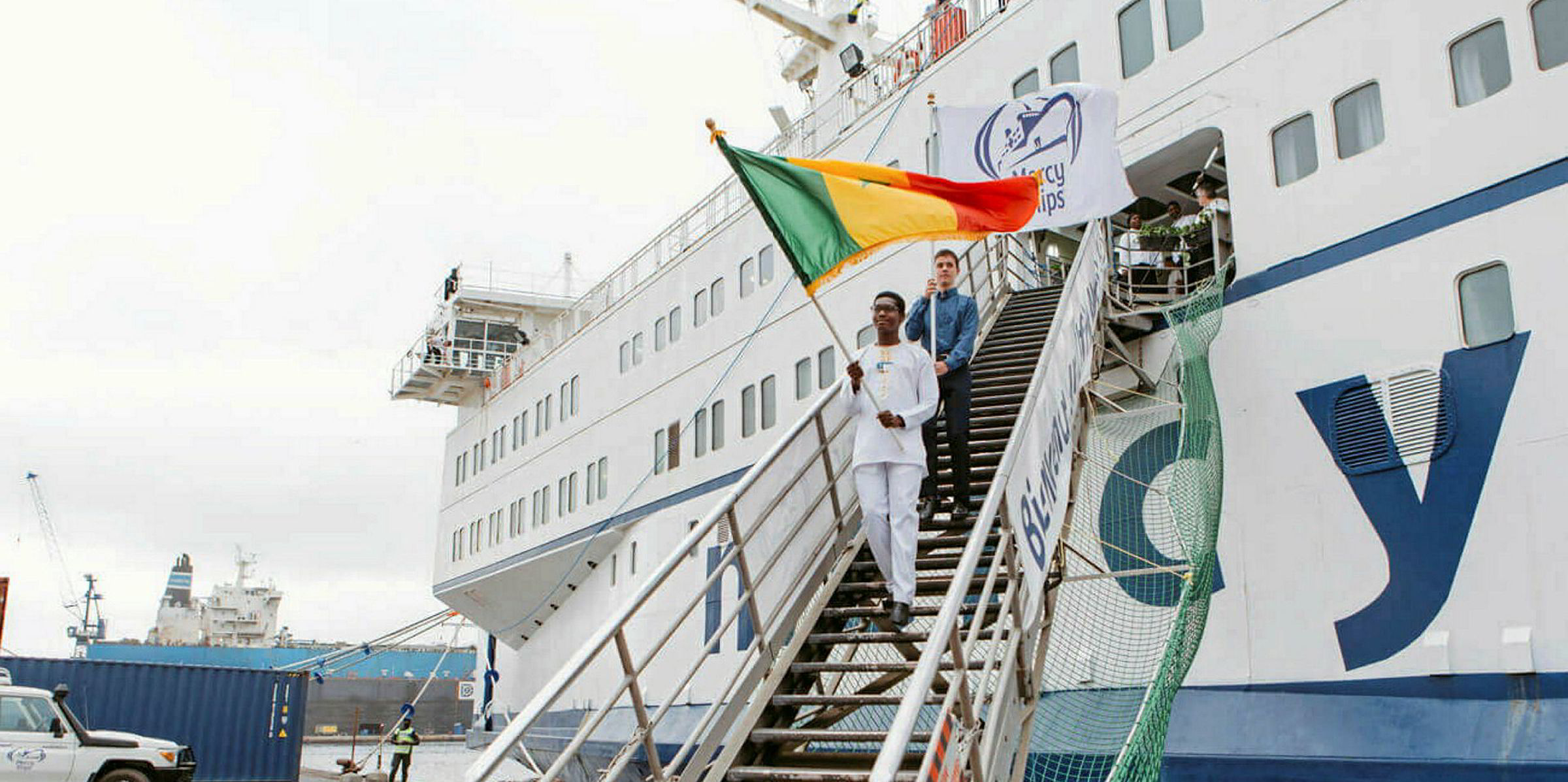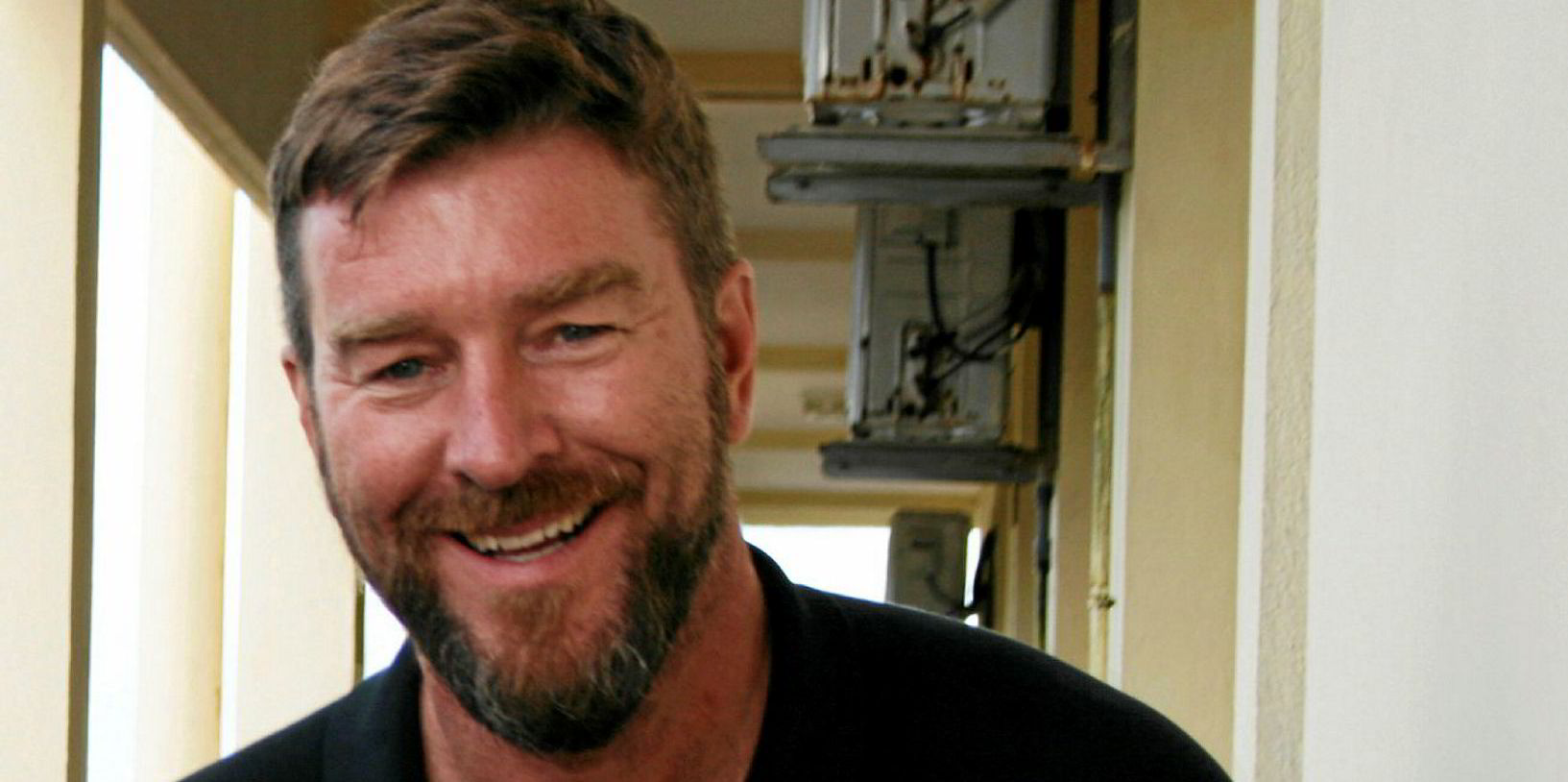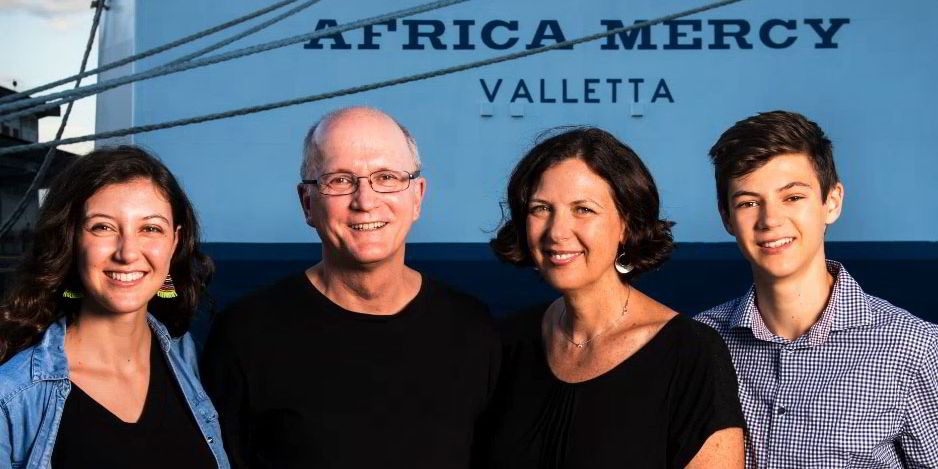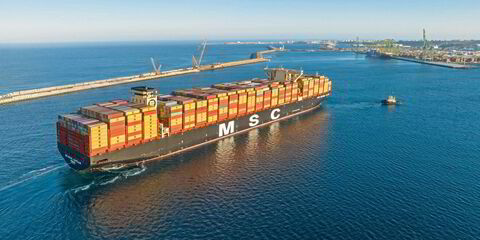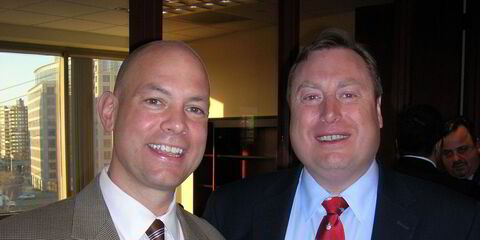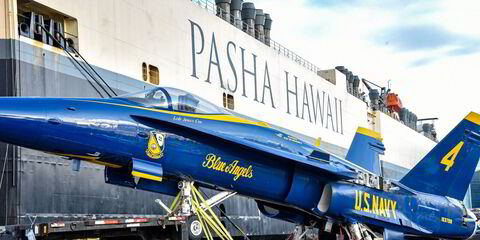The Day of the Seafarer theme that seafarers are key workers is particularly relevant to Mercy Ships, which takes medical help on its converted ferry to some of the neediest parts of the world.
IMO secretary general Kitack Lim said he was deeply touched by “the challenges, hardships and sacrifices that seafarers have made to keep the global supply chain moving” during the coronavirus pandemic.
Lim highlighted how crews have continued working to deliver the goods, food and medicine the world needs, often continuing months beyond when contracts should end, and have faced myriad problems trying to be repatriated from ships.
For the 400 or so seafarers and medics on board the hospital ship Africa Mercy, the issue was doubly distressing. They had to abandon their mission to help people in Senegal on 31 March.
It was not an easy decision to leave early: they had already performed more than 1,400 surgeries, but there was still so much work to do.
Return planned
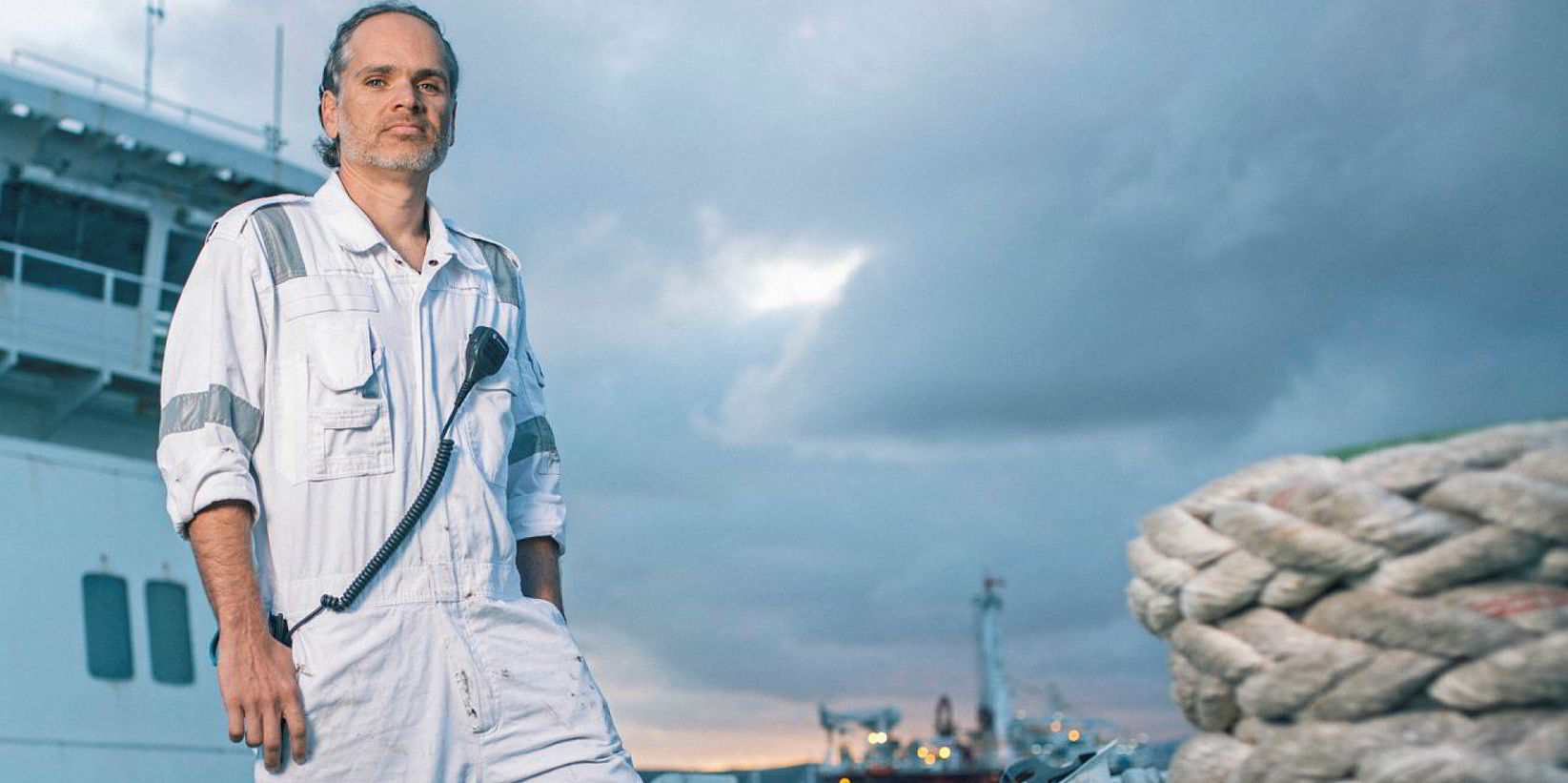
For Brazilian chief officer Rodrigo Silva (above), a highlight of volunteering on the Africa Mercy has been having his family sail with him.
“One of the cornerstones of seafaring life is that we are away and missing the things that are happening back home with the kids, with schooling and with your spouse. Being on board with Mercy Ships is different; you’re able to be together.
“So you can work and, at the end of the day, walk back to your cabin and see your family. It’s unbelievably good.”
On a 10-month field service in neighbouring Guinea last year, 10,000 patients had tumours removed, hernias, cleft lips and/or palates repaired, or underwent paediatric procedures.
Virus permitting, the plan is for the 16,600-gt, 1980-built vessel to return to Senegal by early 2021.
The Africa Mercy had to pack up and leave within 10 days, an operation that normally takes three weeks, and 180 of the crew were repatriated. It then sailed to the Puerto de Granadilla on Tenerife in the Canary Islands. The remaining 240 crew were quarantined there, but remain Covid-free.
Annual maintenance on the ships is done in the Canaries, so, for the technical staff, work continued, and more maintenance could be done, as there was no need to minimise disturbance to patients.
The main issue now is to get the ship through its annual surveys and maintenance before it runs out of people, with crew returning home as flights open up out of the Canaries.
The Spanish state of emergency does not allow international travellers into the country except for key workers, so it has been necessary to protect the remaining personnel on board by following two-week quarantine rules. All crew have been confined on board since 14 March.
Big impact
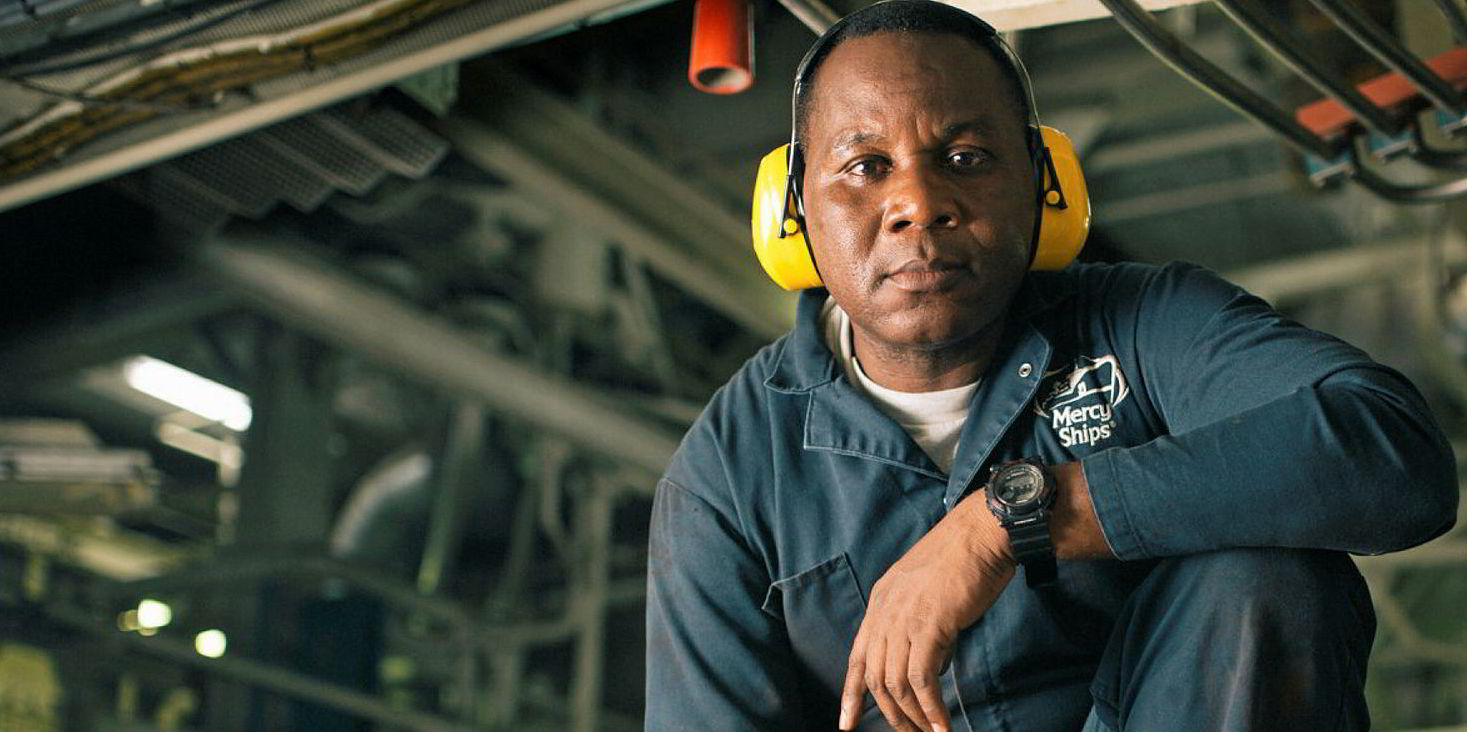
Third engineer Joe Biney (above) from Ghana has been volunteering with Mercy Ships since 1991.
Seafarers like Biney look after the generators in the engine room that provide lighting for the hospital, power for the galley and air conditioning to keep the ship cool.
“On a commercial ship, you may be alone, but on board with Mercy Ships, people are standing with you. These people become your brothers and sisters, they become your friends. We have one goal that we are all working to achieve — to make sure people get help.”
Most of the Mercy Ships crew and medical staff are volunteers, and the charity is going to need 600 more people when a purpose-built newbuilding, the 37,000-gt Global Mercy, goes into operation next year.
The Africa Mercy's Captain Taylor Perez — who first came across Mercy Ships in 1984, and has captained every one of the charity’s ships at some time — said: “The ship is the hospital. You can’t have the hospital without the ship.
“The doctors and nurses, who do such an amazing job, could not do it without the ship. The ship can’t operate without its mariners.
“We don’t just need doctors and nurses, we need ratings, able seamen, motor men, engineers and professionals who can take the time to see something different and be part of something with a big impact.”
How the industry can help
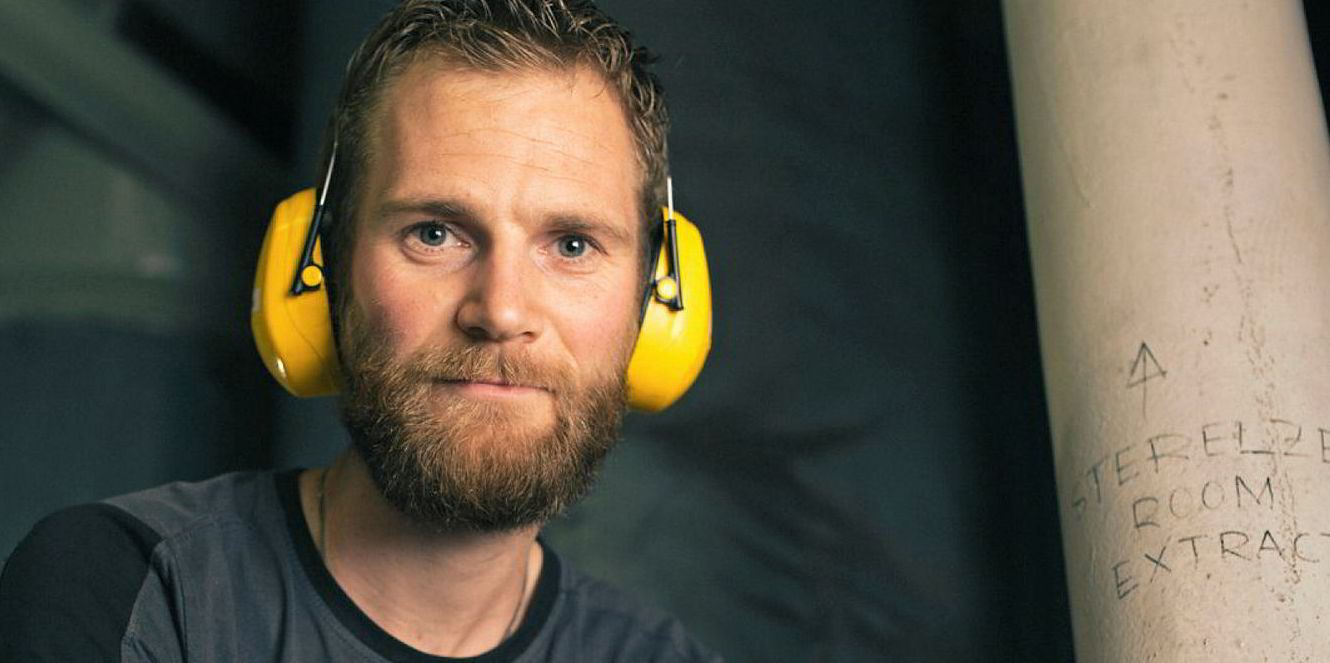
Dutchman Ruben Galama (above) is a mechanical engineer who is working as a heating, ventilation and air-conditioning technician.
“I originally signed up for one year, and that was three-and-a-half years ago! I don’t have any medical skills, but I do have the skills to help keep the ship operational and the hospital running, so patients can get the treatment they need.
“Even though we are not directly involved with the patients, we are all a part of the team that makes this happen. It’s rewarding to be able to use my skills to make a difference.”
Perez said that in the past year the 115 volunteers for the Africa Mercy came from 25 nations for varying lengths of time to keep its 31 deck and 29 engineering positions crewed.
“We will need roughly the same again for the new ship and are taking applications for those interested to be in our ‘talent pool’.”
Mercy Ships would love to liaise with companies in the industry open to giving employees some time in a corporate social responsibility role, or that might consider partnering the charity.
“All ship operators want to attract qualified, dedicated, competent crew for their vessels. The obvious challenge for Mercy Ships is to gain visibility to the maritime community so that those who would want to volunteer will know of this avenue to use their skills to benefit others,” he said.
Crewing requirements will really expand when the Global Mercy goes into action and the Africa Mercy has undergone a refit, allowing the charity to operate two vessels for the first time.
It will need about 1,000 key workers at any one time. Upwards of three times that number will work on the front line for Mercy Ships every year.(Copyright)
